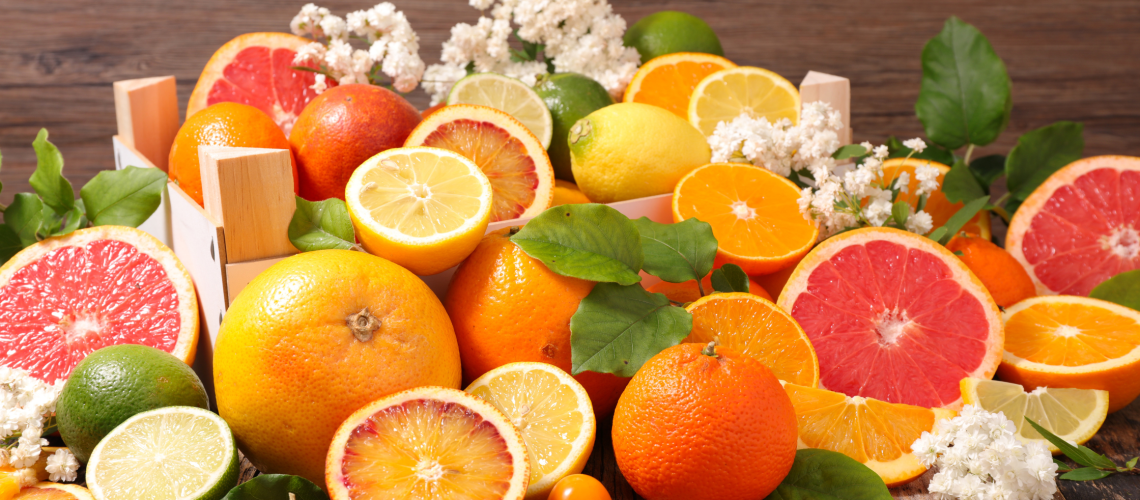Spring is in the air, which means blooming flowers, longer days, and, unfortunately, the annual struggle with allergies. Many of us will inevitably be dealing with pesky symptoms like sneezing, itching, and congestion. But why do allergies cause such a stir in our bodies? Allergies trigger the immune system to produce inflammatory chemicals, such as histamine, in response to harmless substances like pollen or pet dander. This inflammatory response is what leads to the familiar symptoms we experience, from red eyes to runny noses. As a chiropractor, I understand the importance of addressing inflammation holistically, and one powerful way to do that is through our diet.
Let’s dive into the world of nutrition and explore some delicious foods that can help prevent or reduce allergy inflammation, allowing you to enjoy the season with open arms (and clear sinuses!)
- Omega-3 Fatty Acids: Incorporating foods rich in omega-3 fatty acids, such as salmon, flaxseeds, and walnuts, can help reduce inflammation in the body. These healthy fats have been shown to lower the production of inflammatory chemicals, thus alleviating allergy symptoms.
- Quercetin-Rich Foods: Quercetin is an antioxidant found in foods like apples, onions, and citrus fruits. It works by stabilizing mast cells, which are responsible for releasing histamine—a major player in allergic reactions. By including quercetin-rich foods in your diet, you may experience less severe allergy symptoms.
- Turmeric: This spice has been used for centuries in traditional medicine for its anti-inflammatory properties. Curcumin, the active compound in turmeric, helps suppress the body’s release of histamine, making it valuable in fighting against allergy inflammation. Try adding turmeric to your soups, curries, or smoothies for a flavorful boost.
- Local Honey: While more research is needed, some people swear by the benefits of consuming local honey to combat seasonal allergies. The theory is that by ingesting small amounts of local pollen through honey, your body may become desensitized to it over time, reducing allergic reactions. Plus, who doesn’t love a sweet treat that supports local beekeepers? We are very fortunate to have lots of great local options here in Frederick – you can check many of them out at www.homegrownfrederick,com
- Leafy Greens: Dark, leafy greens like spinach, kale, and Swiss chard are packed with vitamins, minerals, and antioxidants that support overall immune function. Their high vitamin C content can also help reduce inflammation and promote healing. Try adding a handful of greens to your morning smoothie or enjoying a crisp salad for lunch.
Remember, maintaining a balanced diet rich in whole, nutrient-dense foods is key to supporting your body’s natural defenses against allergies and inflammation. While these foods can complement other allergy management strategies, consulting with a healthcare professional, like your chiropractor, is essential. Chiropractic care primarily focuses on aligning the spine and promoting optimal nerve function throughout the body. While it may not directly treat allergies, chiropractic adjustments can positively influence the nervous system, which plays a crucial role in regulating the immune response and inflammation.

